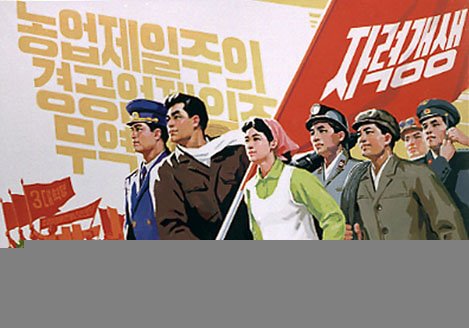Living Conditions of South Korean People in 2008
The people's living conditions in south Korea are recently getting worse owing to the treacherous economic policy of the Lee Myung-bak clan and the aftermath of the catastrophic economic crisis.
- Income imbalance widened and household debt augmented
Since the Lee group clings to the pro-big business policy despite the decrease of the real income of the south Korean lower income brackets, the income gap between the high and low income brackets widened 8.41 times in the first quarter of 2008 alone, the worst record. It was 7.75 times in 2004, 8.29 times in 2005, 8.36 times in 2006 and 8.4 times in 2007.
In the meantime, the household debt increased to 39.6 million won as of late June 2008, 10 % more than that of 2006 (36.01 million won) due to the economic stagnation.
- Tax burden increases and prices skyrocket
In 2008 tax burden per capita increased to 4.36 million won, the largest ever. If some 130 miscellaneous taxes excluded from the taxation statistics are included, the rate of total tax burden against the Gross Domestic Product is 32.1%, far higher than that of the average (26.9%) of the OECD member states.
Mass media and pundits assert that the south Korean people are forced to pay more than a third of their annual income as various taxes and miscellaneous levies, rebuking it as a “Kingdom of tax”.
Meanwhile, the consumer prices rose by 5.9% higher in August 2008 than in August 2007, and in particular, the subsistence prices including the foodstuff needed en masse in daily life rose by 6.6%, owing to the price jump of raw materials including petroleum in international markets.
As a result the people are lamenting their lot saying that they hardly eke out under the lethal bomb of price denouncing the regime which vociferated about controlling the price but molests the commoners.
- The jobless steeply increased
At present the jobless are numbered 3.37 million, 14 % of economic manpower, and among them university-graduated high intellectual unemployed are roughly 2.57 million.
If the irregular jobholders (daily employees and temporary workers) are added, the actual unemployed are no less than 11.97 million.
- Middle class and medium and small-size businessmen go to ruin
The portion of the middle class, once called a pivotal force in society, was 68.6% of all the households in 1996, but dropped to 57.6% now.
11 % of the households were estranged from the middle class for the past 13 years, and 70% of them were reduced to the poor, so that the poor class increased to over 18% of all households now from 11.3% of 1996.
Now medium and small-size businesses are numbered about 3 million, assuming 99% of all businesses, but only in the first half of 2008 some 5 000 medium and small-size businesses went bankrupt, so their situations are getting more miserable.
Besides, because of the world-highest educational expenses a great number of students quit schools or earn the tuition fees by working at a part-time job.
All sorts of diseases including tuberculosis are rampant due to the economic hardship and deteriorated living environment, increasing number of despaired people commit suicide, and murder, robbery and other heinous crimes are sharply prevailing.
Mass media censure that south Korea is a “land of disease”, “republic of suicide” and “kingdom of crime”.
Now the people from all works of life are out in anti-regime struggle upholding such slogans as “Drop the policy for only 1% wealthy people at once” and “We want to live in a country guaranteeing the human treatment”, urging the Lee Myung-bak clique to step down now holding accountable for the ruin of the economy and people's living.
Friday, 20 February 2009
Subscribe to:
Comments (Atom)

.jpg)